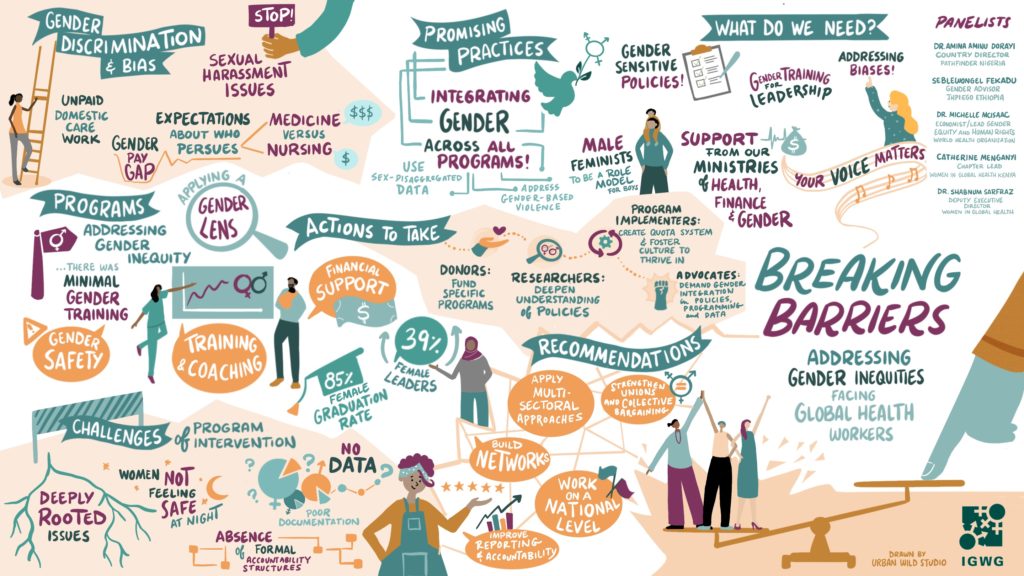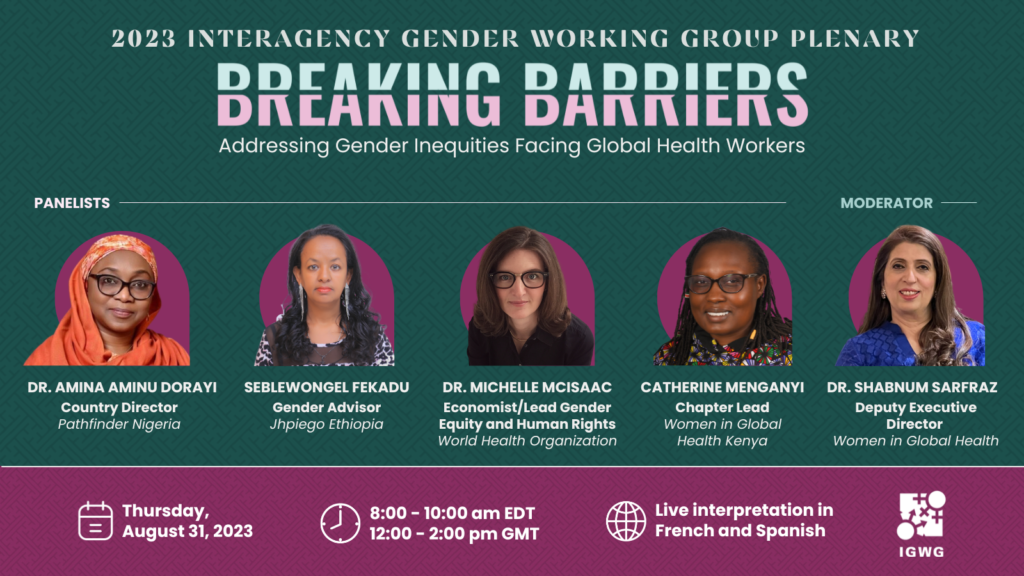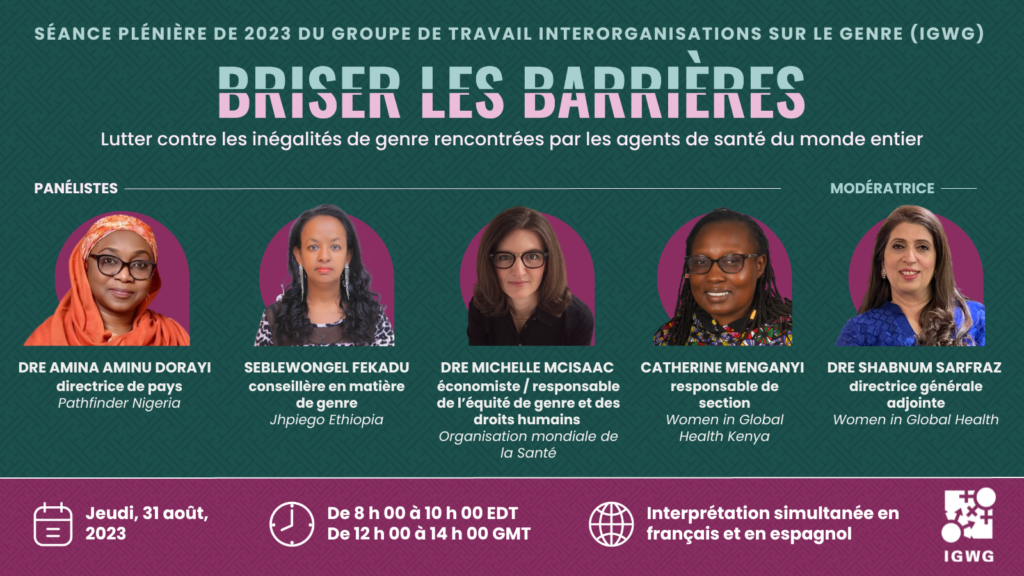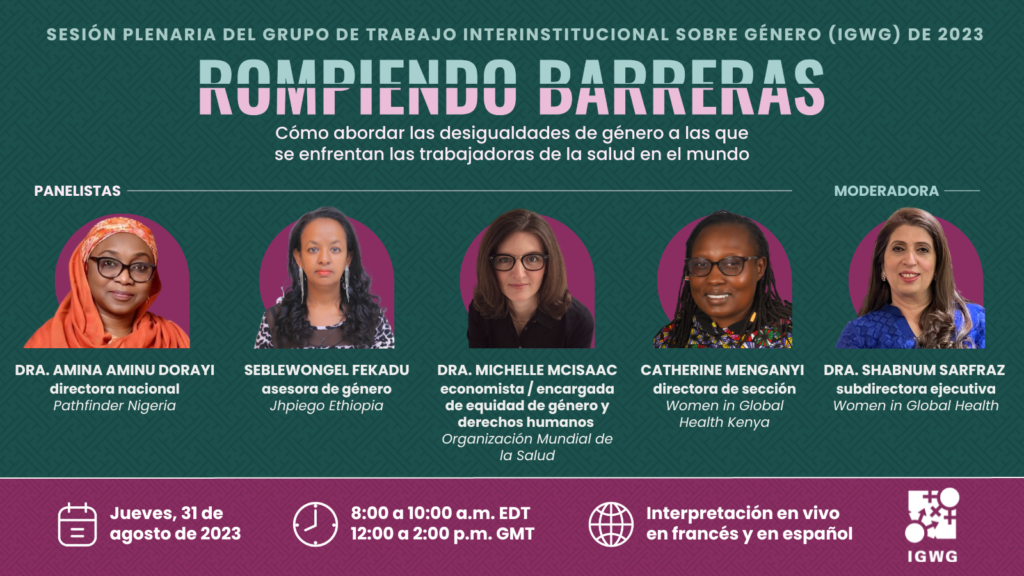Background: The Interagency Gender Working Group (IGWG) hosted its 2023 Annual Plenary on Thursday, August 31 from 8:00-10:00 a.m. EDT, which explored how gender transformative programs can better address workplace inequities affecting health workers, and improve health and gender outcomes.
Gender inequities affect health workers in many ways. Gender inequities are common in health care system practices related to recruitment, retention, promotion pathways, leadership roles, earnings, and even access to full-time employment. Women represent about 70% of the health workforce but earn on average 28% less than men. Gender discrimination also affects health system leadership, governance, and occupational segregation. Women remain least represented in decision-making roles, including as physicians, administrators, and managers. Sexual and gender-based harassment, objectification, mistreatment, and violence are commonly reported by health workers around the world. Additionally, few policies and practices recognize and support the informal care that health workers, predominantly women, are expected to provide at home.
Despite evidence that gender discrimination and inequities in the health workplace are systemic, programmatic attention and funding to address these inequities are limited. However, evidence from other sectors indicates that addressing these inequities could lead to a more sustainable health system that can better address gender inequalities as a social determinant of health, and, ultimately, improve health outcomes for all.
Event overview: The 2023 Plenary highlighted research examining gender inequities faced by health workers and showcased promising practices and lessons learned from innovative programs working to address gender barriers in the health system workplace. The 2023 IGWG Plenary aimed to better equip IGWG members to examine gender inequity in their own organizations and to promote more equitable and inclusive workplaces—both within and outside the health system.
The virtual event began with a panel discussion led by experts and representatives of dynamic gender transformative programs addressing gender inequity in the health workforce.
Panelists included:
- Dr. Amina Aminu Dorayi, Country Director, Pathfinder Nigeria
- Seblewongel Fekadu, Gender Advisor, Jhpiego Ethiopia
- Dr. Michelle McIsaac, Economist / Lead Gender Equity and Human Rights, Health Workforce Department, World Health Organization
- Catherine Menganyi, Chapter Lead, Women in Global Health Kenya
- Dr. Shabnum Sarfraz (moderator), Deputy Executive Director, Women in Global Health
Following the panel discussion, participants joined breakout rooms and shared their personal experiences addressing health workplace inequities, including challenges encountered in their work and advocacy efforts.
Access the 2023 IGWG Plenary Member Reflections Web Feature here.
Read the 2023 IGWG Plenary brief here.
2023 IGWG Plenary Recording (English)
2023 IGWG Plenary Recording (French)
2023 IGWG Plenary Recording (Spanish)
Live Event Graphic
During the 2023 IGWG Plenary, a professional visual notetaker captured key takeaways from the discussion in the below graphic.

Event Slides
View slides from the event here.
Promotional Event Graphics





